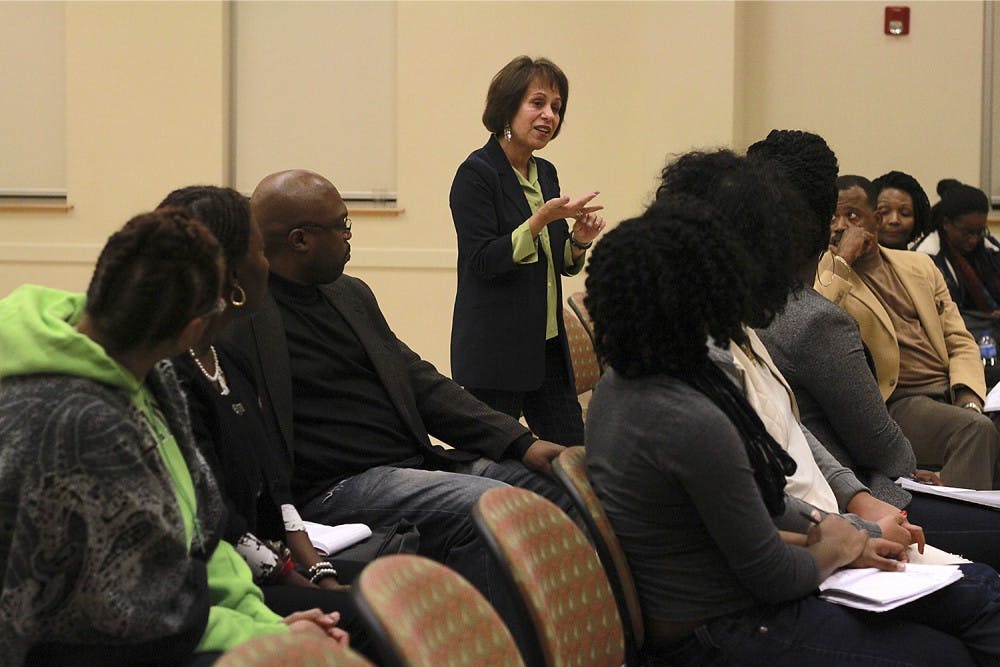Such was the topic of discussion in a panel hosted Thursday by the UNC Black Student Movement, the Carolina Black Caucus and the UNC NAACP.
The discussion, called “The Black and Blue of Carolina: Post-Wainstein,” featured panelists Eileen Parsons, associate professor of science education; Katharine Bailey, UNC junior and NAACP political action committee chairwoman; and Cricket Lane, assistant athletic director for student-athlete development.
“In terms of the report, it did what it was supposed to do,” Parsons said. “It followed the paper trail, and, unfortunately, the paper trail led to the (African, African American and diaspora studies) department.”
But she said some of the framing in the report was skewed and could lead people to make false assumptions about the proportion of African-American students who took paper classes.
Bailey said the report devalues the AAAD department.
“If it takes requiring an AAAD class as a gen ed, I’m all for that,” Bailey said. “The ignorance is outstanding.”



